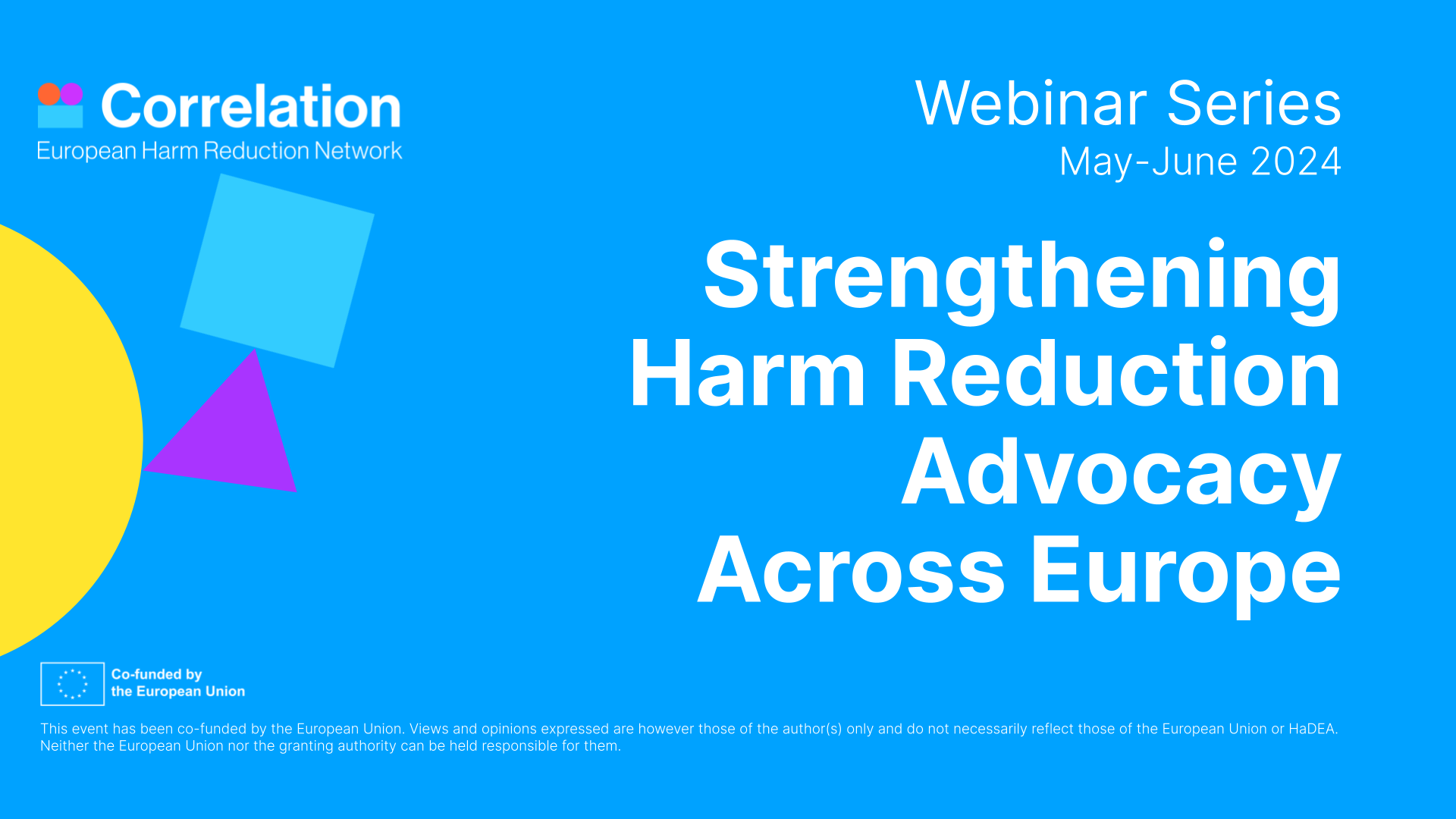
When it comes to addressing drug consumption and its associated risks, the stigma surrounding people who use drugs negatively impacts their access to support and health services. When stigmatised, people feel discouraged from seeking the care they need due to feeling judged and degraded.
Harm reduction services approach drug use in all its complexity, upholding the rights of people who use drugs while searching for evidence-informed strategies of care and support. Harm Reduction aims to empower and support people who use drugs in regaining agency and leadership, contributing to their meaningful participation in reducing the potential harm of their drug use. Among others, examples of strategies to reduce stigma and improve access to treatment and support services include advocating for and contributing to the decriminalisation of drug use or the implementation of alternatives to incarceration.
For the International Day against Drug Abuse and Illicit Trafficking, we have collected some updates from the harm reduction field touching on addressing stigma.
→ 2023 #SupportDontPunish Global Day of Action
June 26th marks the 11th #SupportDontPunish Global Day of Action. The Support. Don’t Punish. Campaign unites initiatives working towards sustainable alternatives to the ‘war on drugs’ and supporting strategies to drug- and drug-policy-related challenges that are based on solidarity and the rights of the communities they represent. The campaign aims to connect and visibilise these local efforts as part of a global movement.
Find out more here.
→ Recommendations for tackling stigma and discrimination – joint statement by the EUHPP Thematic Network
The European Health Policy Platform Thematic Network on HIV, TB, viral hepatitis, and STIs, led in collaboration with the EU Civil Society Forum, is working to involve non-governmental organizations in policy development, implementation, and sharing of information. They released a joint statement in June that has been supported by 40 European organizations.
The statement points out the gaps in addressing the needs of individuals affected by HIV/AIDS, viral hepatitis, and tuberculosis in the EU. It also provides recommendations to tackle the stigma and discrimination faced by key populations, including people who use drugs.
You can read the statement here.
→ Statement from UN experts addresses stigma and discrimination and calls for people-centred alternatives to the ‘war on drugs’
A recent statement by United Nations experts underscores the detrimental effects of stigmatization and urges the exploration of alternative approaches to address the global challenge of drug-related issues. The experts advocate for a comprehensive and restorative justice framework, alongside inclusive and community-based measures. By challenging the paradigm of the ‘war on drugs,’ they emphasize the importance of adopting a more compassionate and efficient response. For further insights, you can access their statement here.
→ New toolbox to initiate harm reduction in prisons will be available by October
A toolbox to give guidance on the application of harm reduction approaches in prisons is under development. The toolkit, developed by C-EHRN in consultation with relevant stakeholders and experts, will be launched in October and presented at the C-EHRN Member and Expert Meeting in Budapest in December.
→ Civil society involvement in Finland, Ireland, Hungary and Greece – What stage are we at?
In 2023, C-EHRN and the Rights Reporter Foundation will conduct a study to assess the level and quality of civil society involvement in four EU countries, Finland, Ireland, Hungary and Greece. The case studies will reflect on the application of quality standards based on the Quality Standards for Civil Society Involvement in Drug Policy, developed in 2021 as part of the Civil Society Forum on Drugs (CSFD) Project. The study will also address how CSO are involved in the implementation of drug policies in each country.